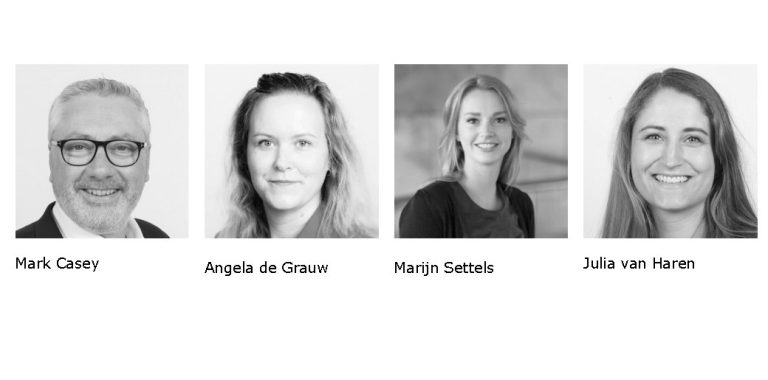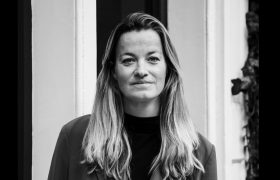‘The Old Boy’s Network has had its run’

What use for chivalry in 2019? The door-holding and coat-taking gentleman seems oddly quaint in feminist times – but a new breed of gentleman arises that not only stands up for women on the train, but makes way for female professionals in the workforce. Mark Casey, global managing partner of Deloitte’s Telecoms, Media & Entertainment practice, recently appointed as partner in the financial advisory practice of the Deloitte Amsterdam office, insisted that he’d share the table for his welcoming interview with M&A Magazine. Joining him are Angela de Grauw-Beerens, Marijn Settels and Julia van Haren to talk about diversity in the workforce, a key point of Casey’s proposed strategy for his new role at Deloitte in the Netherlands.
Casey is well qualified to speak on this topic, as he’s not only an experienced team leader within Deloitte around the world, but has been active in the spaces of diversity and inclusion for many years – and intent on carrying this theme through in his new Amsterdam role.
Quota & Accountability
‘At first, I was opposed to quota’ says De Grauw-Beerens, an experienced dealmaker with many a big transaction under her belt ‘I used to think that quality of work should be the criterion, but we’ve had this discussion for over ten years now and very little has changed.’ Maybe little has changed within big Dutch firms, but not on the outside world. ‘We have to reflect the teams of our clients, and we see a lot more diversity in the teams of our partner companies.’ The Dutch firms tend to lag behind on international trends, as evidenced by academic research and publications in Het Financieele Dagblad – not a good position to be in.
Never mind the impatience; there’s also something in the mindset of a professional adviser, or the culture of a professional services firm that supports quota. All present agree that quotas and measurements give a better grip on the situation. Quantifying problems and solutions and holding people to account against measurable standards is, after all, very much how we operate.
Nurturing Structures
With the Dutch lower house of parliament recently passing quota legislation, the abstract topic of hard targets for diversity suddenly became rather concrete. In South Africa, however, the practice has deep roots and a long track record. In the reconstruction of the post-Apartheid economy quotas were an important tool to break down barriers of inequality. Having worked in South Africa since the early ’90s, Casey has seen this system in action.
‘There’s a clear difference between companies that just did things by the numbers and the companies that nurtured true diversity’ Casey says. ‘The companies that just ticked off the boxes failed.’ Just hitting targets is in his opinion is not enough. ‘Companies need to build a nurturing culture to allow people to grow and diverse teams to operate effectively, and be committed in the heart as much as in the mind.’ This is important as to not waste talent present in the economy, but also internally, to reduce friction within the company. Formal measures are important, but informal networks and social contacts are equally conducive to a productive environment. ‘The Old Boy’s Network has had its run’ says Casey, and new, inclusive networks are being constructed at pace
Pipeline
Any discussion on gender diversity in finance sooner or later runs into a discussion of the dreaded pipeline. The biggest excuse for imbalanced teams is that there simply are not enough qualified graduates to fill the roles, and that business schools are geared far too much toward male students. ‘There are so many recruitment and networking events aimed at women that I never felt like I was at a disadvantage. There might even be a slight advantage for female students.’ Also, the goal-oriented nature of business schools (or M&A, for that matter) that is sometimes characterized as excessively male never scared her off. ‘For me, the excitement in M&A is all about setting targets and achieving goals’. De Grauw-Beerens stresses that this is not a particular male way of doing business: ‘in the end, it’s all about closing the deal. It might be that female dealmakers are more focused on the team, but in the end, the entire team has to reach the target.’









